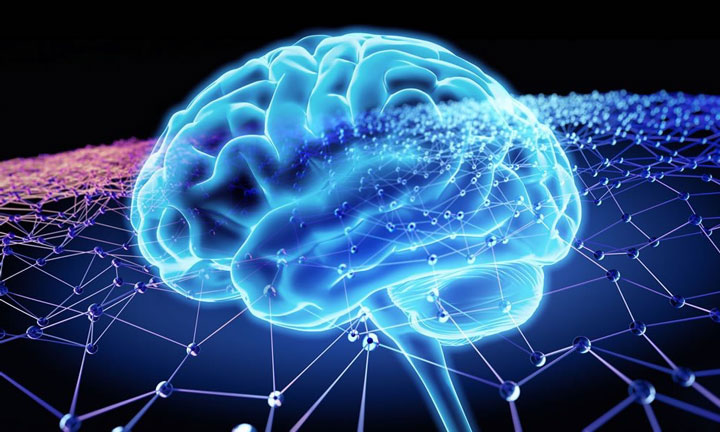
There are some rarified (typically mathematical) arguments that random processes – given an infinite scope & time – will “almost surely” produce any specific artifact spontaneously – a complex thing in its entirety, rather than its components. Such claims strike me as mythic (at best).
Yet, naturally, the meaning and emergence (evolution) of consciousness (conscious brains) remain open questions.
A recent Phys.org article (below) summarizes a study of “A numerical evaluation of the Finite Monkeys Theorem.” Might this apply to Boltzmann brains?
• Wiki > Infinite monkey theorem
The theorem can be generalized to state that any sequence of events that has a non-zero probability of happening will almost certainly occur an infinite number of times, given an infinite amount of time or a universe that is infinite in size.
Even if every proton in the observable universe (which is estimated at roughly 10^80) were a monkey with a typewriter, typing from the Big Bang until the end of the universe (when protons might no longer exist), they would still need a far greater amount of time – more than three hundred and sixty thousand orders of magnitude longer – to have even a 1 in 10^500 chance of success. To put it another way, for a one in a trillion chance of success, there would need to be 10^360,641 observable universes made of protonic monkeys. As Kittel and Kroemer put it in their textbook on thermodynamics, the field whose statistical foundations motivated the first known expositions of typing monkeys, “The probability of Hamlet is therefore zero in any operational sense of an event …”, and the statement that the monkeys must eventually succeed “gives a misleading conclusion about very, very large numbers.”
In fact, there is less than a one in a trillion chance of success that such a universe made of monkeys could type any particular document a mere 79 characters long.
• Wiki > Boltzmann brain
The Boltzmann brain thought experiment suggests that it might be more likely for a brain to spontaneously form in space, complete with a memory of having existed in our universe, rather than for the entire universe to come about in the manner cosmologists think it actually did.
The idea is named after the physicist Ludwig Boltzmann (1844–1906), who, in 1896, published a theory that tried to account for the fact that the universe is not as chaotic as the budding field of thermodynamics seemed to predict. He offered several explanations, one of them being that the universe, even after it had progressed to its most likely spread-out and featureless state of thermal equilibrium, would spontaneously fluctuate to a more ordered (or low-entropy) state such as the universe in which we find ourselves. Boltzmann brains were first proposed as a reductio ad absurdum response to this explanation by Boltzmann for the low-entropy state of our universe.
The Boltzmann brain gained new relevance around 2002, when some cosmologists started to become concerned that, in many theories about the universe, human brains are vastly more likely to arise from random fluctuations; this leads to the conclusion that, statistically, humans are likely to be wrong about their memories of the past and in fact are Boltzmann brains. When applied to more recent theories about the multiverse, Boltzmann brain arguments are part of the unsolved measure problem of cosmology.
The average timescale required for the formation of a Boltzmann brain is vastly greater than the current age of the universe. In modern physics, Boltzmann brains can be formed either by quantum fluctuation, or by a thermal fluctuation generally involving nucleation.
The consensus amongst cosmologists is that some yet-to-be-revealed error is hinted at by the surprising calculation that Boltzmann brains should vastly outnumber normal human brains
American theoretical physicist and mathematician Brian Greene states: “I am confident that I am not a Boltzmann brain. However, we want our theories to similarly concur that we are not Boltzmann brains, but so far it has proved surprisingly difficult for them to do so”.
• Phys.org > “Typing monkey would be unable to produce ‘Hamlet’ within the lifetime of the universe, study finds” by University of Technology, Sydney (October 30, 2024) – A new study reveals it would take far longer than the lifespan of our universe for a typing monkey to randomly produce Shakespeare. So, while the Infinite Monkey Theorem is true, it is also somewhat misleading.
“The Infinite Monkey Theorem only considers the infinite limit, with either an infinite number of monkeys or an infinite time period of monkey labor,” said Associate Professor Woodcock.
“We decided to look at the probability of a given string of letters being typed by a finite number of monkeys within a finite time period consistent with estimates for the lifespan of our universe,” he said.
“This finding places the theorem among other probability puzzles and paradoxes – such as the St. Petersburg paradox, Zeno’s paradox, and the Ross–Littlewood paradox – where using the idea of infinite resources gives results that don’t match up with what we get when we consider the constraints of our universe,” said Associate Professor Woodcock.
